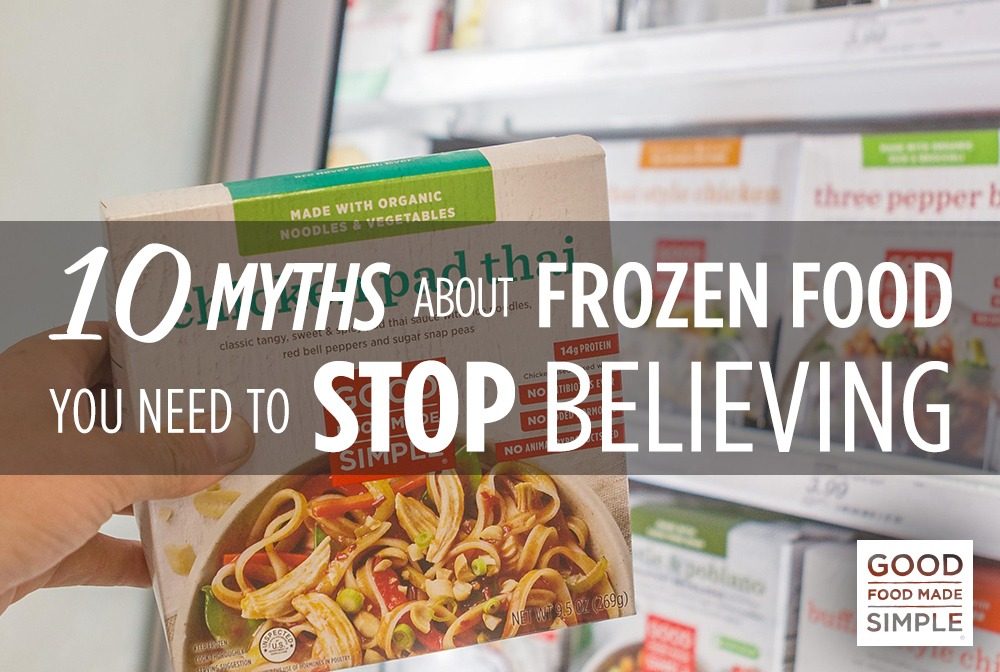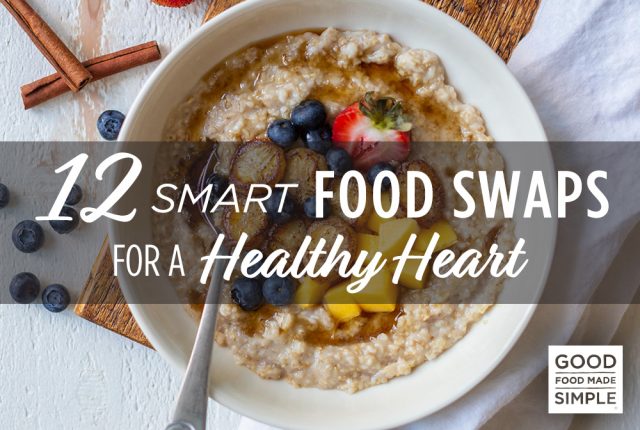
25 Active Date Ideas
While going on dates can certainly be fun, a typical night out with a romantic partner often ends up being focused on eating ...
read more
While the freezer is known for storing some of our favorite sweet treats (we’re looking at you, ice cream) it’s also a great place to keep healthy meals and snacks to defrost and enjoy at a moment’s notice.
Yet, frozen food often gets a bad rap. Many people associate freezer meals with loads of preservatives, salt, and fat, and there are myths abound about the proper way to defrost and refreeze foods, along with when things need to get thrown out.
We’re going to debunk the stigma around frozen food so you can use your freezer to your advantage — having healthy meals available to you at any time! We’ll also share some best practices when it comes to freezing, storing, and reheating your food, so you can make the most out of every food item you purchase.
Probably the most popular myth out there is frozen food does not contain the same nutritional value that the fresh stuff does. While a frozen pepperoni pizza won’t pack as many vitamins and minerals as say, a homemade salad, things like frozen fruits and vegetables will have the same, if not more nutrients than what we might find in the produce aisle. This is because frozen fruits and veggies are usually picked at their peak ripeness. In fact, one study found that the antioxidant levels between frozen and fresh veggies — peas, green beans, carrots, spinach, and broccoli, to be exact — were virtually the same. Furthermore, while some people say that frozen produce will lose its nutritional value over time while stuffed away in the freezer, the reported nutrient decrease via various studies is marginal.
While this would be nice, freezing foods won’t actually kill off bacteria and other harmful things in our food. The truth of the matter is bacteria can survive freezing temps, and when food is eventually thawed, bacteria can and probably will still be there. Cooking it to the recommended temperature is a surefire way to ensure your food is safe to eat. To be extra cautious, use a thermometer!
If your mind automatically wanders to Hot Pockets and Ellio’s pizza, then sure: it’s easy to believe all frozen foods are highly processed. While that used to be the norm down the freezer aisle, our evolving, health-conscious culture has also led to food brands creating healthier frozen meals that are great options when we don’t have time to cook a meal. The best way to spot a healthy frozen meal is to inspect the label. Ingredients are listed from largest to smallest quantity, so pay most attention to the first few items you see. The list should be relatively short; the longer the list, the more chances for preservatives or additives.
Similar to processing, people often jump to sodium content when thinking about frozen meals. This is because sodium is often used as a preservative, not to mention a way to enhance flavor. While sodium’s natural preservation powers will most certainly always be a reality, more and more brands are offering low-sodium options to their menus. Again, read the nutritional label so you know what’s good for you; The Cleveland Clinic recommends frozen meals contain less than 600 mg of sodium.
While the list is quite long when it comes to what can be frozen, there are a few foods you should avoid throwing in the freezer. For starters, delicate veggies (think: arugula, scallions, herbs) tend to stick together when frozen and curdle when thawed. You should avoid freezing these all together. Other items, like canned goods and eggs, also can’t be frozen, but there’s a catch: the food or liquid inside the can, along with the egg inside its shell, can be frozen on its own. Lastly, while many people like to keep coffee in the freezer, a coffee bean’s natural oils will break down in freezing temps and as a result, lose some of its flavors. It’s best to keep coffee in a cool and dry cabinet.
We’re not really sure where this myth first formed, but you can absolutely freeze and refreeze food, just as long as it hasn’t been left outside for more than two hours. If you stick to the two hours rule (or one hour if it’s over 90 degrees) your food will be safe to eat. That said, refreezing uncooked food — especially meat — might lead to a loss of some flavor due to a bit of moisture escaping while it thaws.
You might not think about this often, but choosing where you put your food in the freezer matters. While people often opt for the freezer door, this is where the temperature tends to fluctuate the most, since warm air gets inside every time you open or close the door. To make sure everything stays super cold, keep food as close to the back of the freezer as possible.
Believe it or not, most foods benefit from proper storage techniques before they go inside the freezer. For example, if you’re planning on freezing veggies (just no delicate ones, remember!) it’s best you blanch them first to avoid a watery veggie hitting the freezer, which can lead to freezer burn or sogginess once thawed. As far as meat goes, the best plan of action is to remove it from its original package and place it in a freezer-safe bag. This ensures bacteria won’t form in its original plastic container.
The catch here is as follows: As long as you store food properly, they can safely be eaten indefinitely once thawed. (Pro tip: Properly means ensuring it stays in the back of the freezer at 0°F or below.) That said, FoodSafety.gov offers a list of recommended times for the freezer when talking about consuming food at its highest quality. Over time (we’re talking up to a year) food will lose some of its nutritional value. It’s still okay to eat, it just might not be as flavorful or packed with all its original vitamins and minerals.
Last but not least, many people are skeptical when it comes to frozen food because it’s believed to be pricey. While we can’t deny that frozen foods are often marked up, many healthy freezer meals are way more affordable than going out to a restaurant, ordering takeout, or trying to buy produce when it’s out of season. (If you’ve ever purchased berries in the winter, you know what I mean.) In other words, buying a few frozen meals to have on hand when you don’t have time to cook will save you lots of money, and calories, versus calling your local pizza delivery.
With your freezer myths now busted, hopefully, you’re convinced and excited to take a trip down the freezer aisle on your next visit to the grocery store. Just remember to read the labels, store your food properly, and enjoy your thawed-out food with family and friends.

25 Active Date Ideas
While going on dates can certainly be fun, a typical night out with a romantic partner often ends up being focused on eating ...
read more
12 Smart Food Swaps For A Healthy Heart
February is American Heart Month, and one of the best ways to maintain good heart health is to watch what you eat. Instead of...
read more
Starting the New Year With the ‘Right’ Mindset
With the holiday finally over and the new year upon us, I’d be shocked if you haven’t thought about New Year's Resoluti...
read more